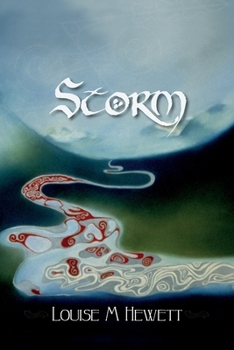Storm
Select Format
Select Condition 
Book Overview
Spring moves into summer in the Adelaide Hills and life seems only to grow richer with each day for R is n Clare, her lovers, and the Pictish Spirit community. Adam and Ben have returned from their honey-month, lovers are reunited and bonds deepen and flourish. Preparations are underway for the rituals of commitment at the summer solstice, and life's promise matures and unfolds. But when chaos erupts at the very core of the Pictish Spirit community, shock leaves friends and family devastated, floundering to bring in the integrity of the tools of their tradition which now must prove its worth. The seekers and Braves are faced with a choice: stand or run, engage or resist. How deeply has the mystery of their relationship with Bhr de-Cailleach been internalised? And indeed, how will R is n and her lovers bear the crisis that has brought them into direct confrontation with Her most uncompromising face.
Format:Paperback
Language:English
ISBN:1548881392
ISBN13:9781548881399
Release Date:September 2018
Publisher:Createspace Independent Publishing Platform
Length:822 Pages
Weight:2.49 lbs.
Dimensions:1.6" x 6.1" x 9.2"
Customer Reviews
2 customer ratings | 2 reviews
There are currently no reviews. Be the first to review this work.





















